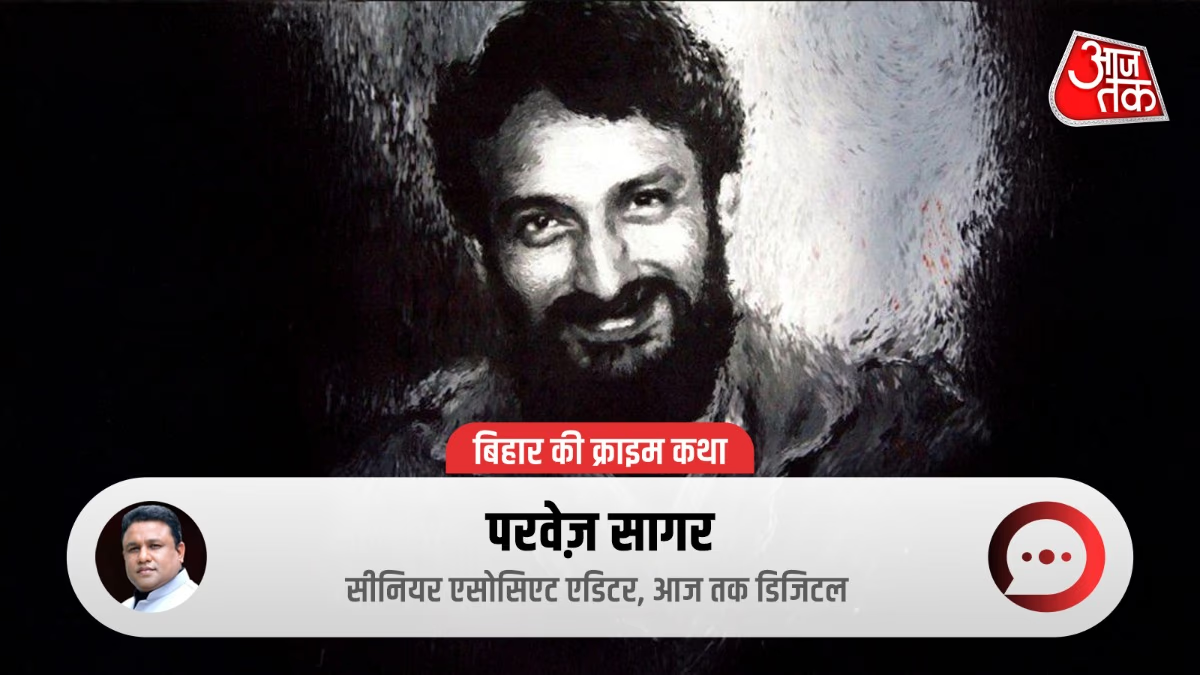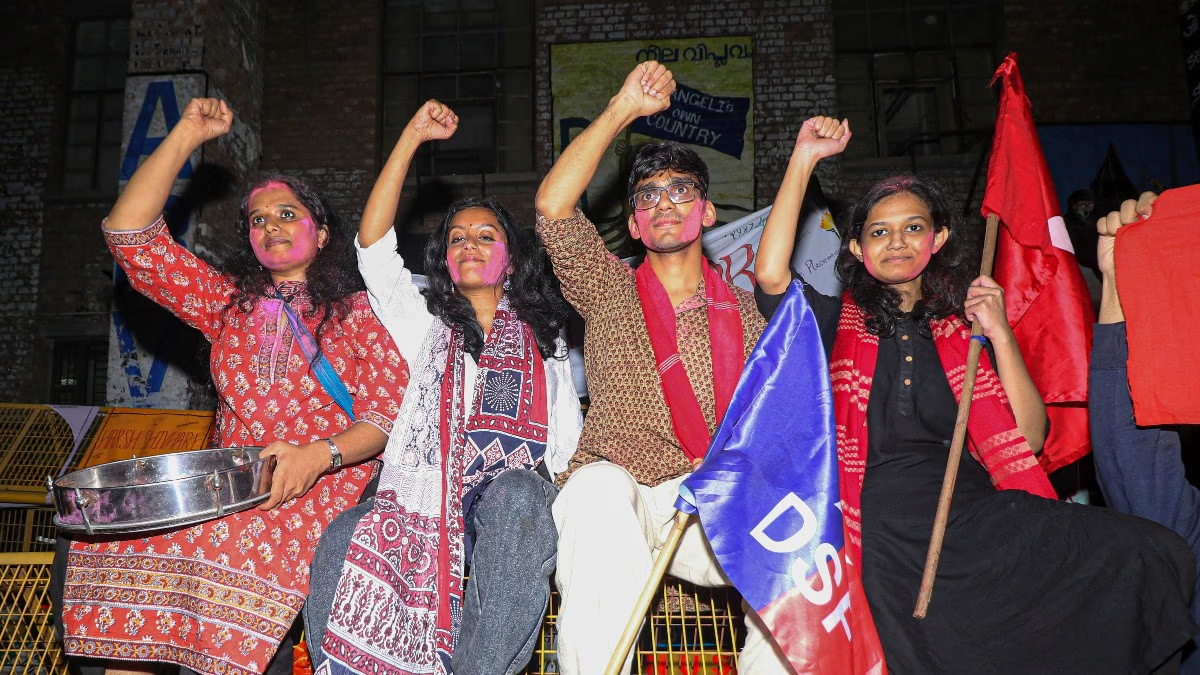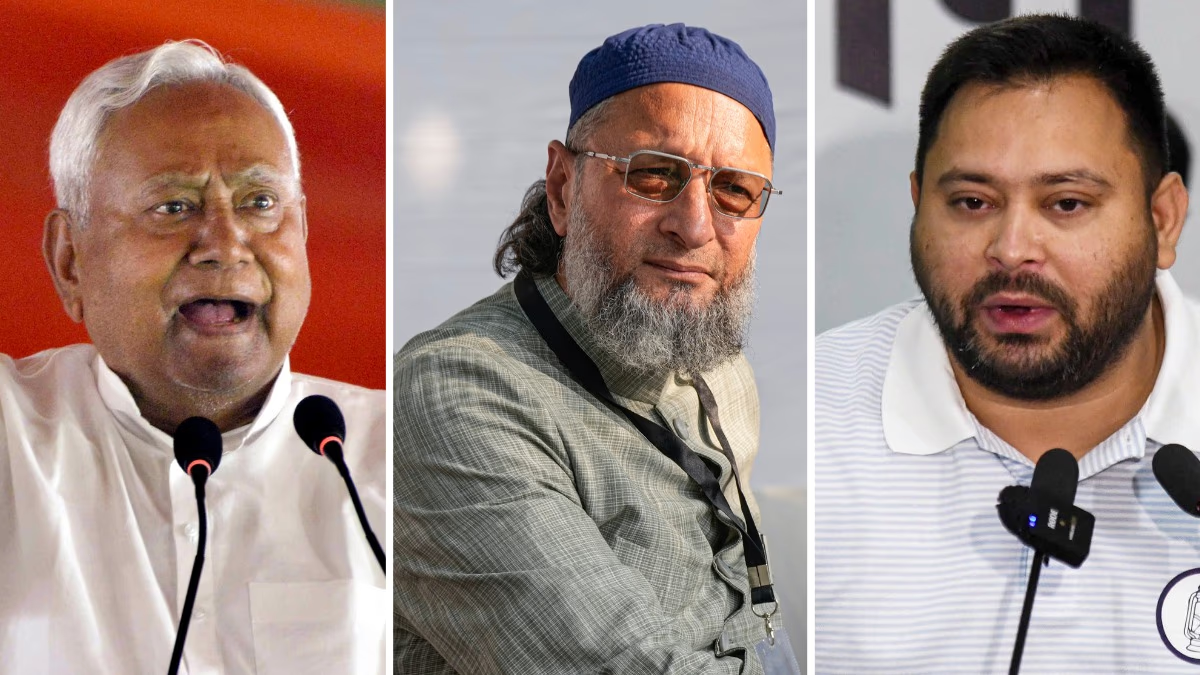Chandrashekhar Prasad Murder Case:
March 31, 1997, marked a grim day in Siwan, Bihar, when the streets turned red with blood. The JNU former student leader and CPI (ML) activist, Chandrashekhar Prasad, was brutally murdered in broad daylight. This was not merely an assassination but the ruthless face of crime masked by politics.
The gunshots at Siwan's J.P. Chowk not only silenced Chandu forever but also fueled student movements across the nation. This murder, overshadowed by powerful political figures, became a black chapter of Bihar's violent political landscape. 'Crime Story' presents a tale of power, crime, and sacrifice etched in the annals of Bihar's history.
Who was Chandrashekhar Prasad, aka Chandu?
Born on September 20, 1964, in a humble family in Siwan, Bihar, Chandrashekhar, affectionately called Chandu, faced challenges early on with the death of his father at the age of eight. After studying at Sainik School, Tilaiya, he was selected for the National Defence Academy (NDA), but his call of duty was towards social justice and public service. Studying at Patna University and JNU, his revolutionary ideals soared. He once said, “It's my ambition to live like Bhagat Singh and die like Che Guevara.”
The Rising Star at JNU
At Jawaharlal Nehru University (JNU), Chandrashekhar carved a niche as the students' union president. His eloquence, deep understanding of societal issues, and fearlessness made him a beloved figure among students. He joined CPI (ML) Liberation, raising his voice against feudal systems, poverty, and exploitation. Several movements under his leadership at JNU challenged Bihar's violent politics, uncomfortably echoing through Siwan's feudal corridors.
Siwan: The Nexus of Crime and Politics
In the 1990s, Siwan, Bihar, epitomized the open growth of crime-politics alliances. Under the Janata Dal (later RJD) government, leaders like Mohammad Shahabuddin misused their power. Attacks and killings of CPI (ML) workers were rampant; over 70 such members were murdered between 1990 and 1996. Chandrashekhar's open challenge to this violence put him in Shahabuddin's crosshairs.
Chandrashekhar Returns to Siwan
Post-JNU, Chandrashekhar decided to return to Siwan as a full-time CPI (ML) activist. The decision wasn't easy, as Siwan was rife with feudal and criminal forces violently campaigning against CPI (ML). He initiated gatherings advocating for the poor, laborers, and Dalits' rights in Siwan's streets. His candidness and connection with the people made him popular but also marked him for danger.
J.P. Chowk Echoes with Gunshots
March 31, 1997, is etched in Siwan's dark history. During a CPI (ML) strike support meeting at J.P. Chowk, Chandrashekhar was addressing the public when suddenly, motorcycle assailants arrived, firing shots. Chaos ensued as people dispersed. Chandrashekhar was the target, and as bullets flew, his life, alongside compatriot Shyam Narayan Yadav and passerby Bhuteli Miyan, was tragically claimed.
Chandrashekhar and Shyam laid lifeless in pools of blood on stage while chaos reigned. The assailants vanished, this daylight slaughter staining Siwan's streets and shocking the nation.
Allegations Against Shahabuddin
Due to the case's high-profile nature, police investigations ensued swiftly. CPI (ML) held RJD MP Mohammad Shahabuddin accountable for the assassination, leading to his name and five others being included in the FIR.
Chandrashekhar's growing popularity and fearless rebellion were considered threats to Shahabuddin. Rumor held that the assassination was orchestrated on Shahabuddin's directive. However, the CBI later omitted him from the charge sheet due to insufficient evidence, sparking controversy.
CBI Investigation Under Scrutiny
Facing mounting controversy, the CBI took over the investigation but remained embroiled in disputes. The CBI failed to substantiate charges against Shahabuddin in court, which many, including CPI(ML) and Chandrashekhar's supporters, deemed biased. Accusations of witness intimidation and evidence tampering highlighted the examination's inadequacies. Despite beliefs of official influence, the investigation revealed the deep-seated nexus of crime and politics in Bihar.
Court Verdict and Unfulfilled Justice
Despite continued student upheaval months after the assassination, 2012 marked the conviction of four accused: Dhruv Prasad Jaiswal, Ilyas Waris, Sheikh Munna, and Rustam Khan, receiving life sentences, upheld by the Patna High Court in 2019. The omission of Shahabuddin sparked ongoing debate. For Chandrashekhar's supporters, justice remained incomplete since the principal perpetrator evaded punishment.
Nationwide Student Movements
Chandrashekhar's murder incited fury among students nationwide. Thousands marched through Delhi, Patna, Lucknow, and beyond. JNU peers labeled the murder as an emblem of Bihar's violent politics, drawing national focus with demonstrations in Delhi's Bihar Bhawan, immortalizing Chandrashekhar's vision and sacrifice.
Violent Clashes During Demonstrations
During Bihar Bhawan protests in Delhi, tensions escalated. Students accused the Bihar government of complicity. Amidst the protests, a separate case emerged involving an attack on then-Chief Minister Lalu Prasad Yadav's brother-in-law, Sadhu Yadav. This highlighted the state's accountability and cemented Chandrashekhar's murder as a national issue.
Chandrashekhar Prasad's Enduring Legacy
Chandrashekhar's murder rendered him an immortal martyr. His ideology and fight for social justice continuously inspire the youth. Annual commemorations in JNU and his statue in Siwan serve as a beacon of inspiration, incorporating his sacrifice into CPI (ML)'s ongoing struggle. Chandrashekhar's narrative symbolizes Bihar's call for change.
The Party's New Strength
Chandrashekhar Prasad's murder exposed the crime-politics nexus in Bihar. The dominance of leaders like Mohammad Shahabuddin and rampant violence was a harsh reality of that era. This assassination fueled widespread anger against the system in Siwan and across Bihar. CPI (ML) Liberation integrated Chandrashekhar's murder as a representation of their fight against feudal and criminal forces, enhancing local activism and launching campaigns against leaders like Shahabuddin. His sacrifice revitalized the party, strengthening its advocacy for the vulnerable.
Chandu's Memories Linger in Siwan
Chandrashekhar Prasad's legacy endures in Bihar's Siwan district, with his story seeping through political discourse and perpetuating awareness against violence and crime. While the crime-politics alliance hasn't entirely vanished, leaders like Chandrashekhar have invigorated societal consciousness for change. From JNU to Siwan, his tale remains an enduring saga of courage and sacrifice against injustice.




